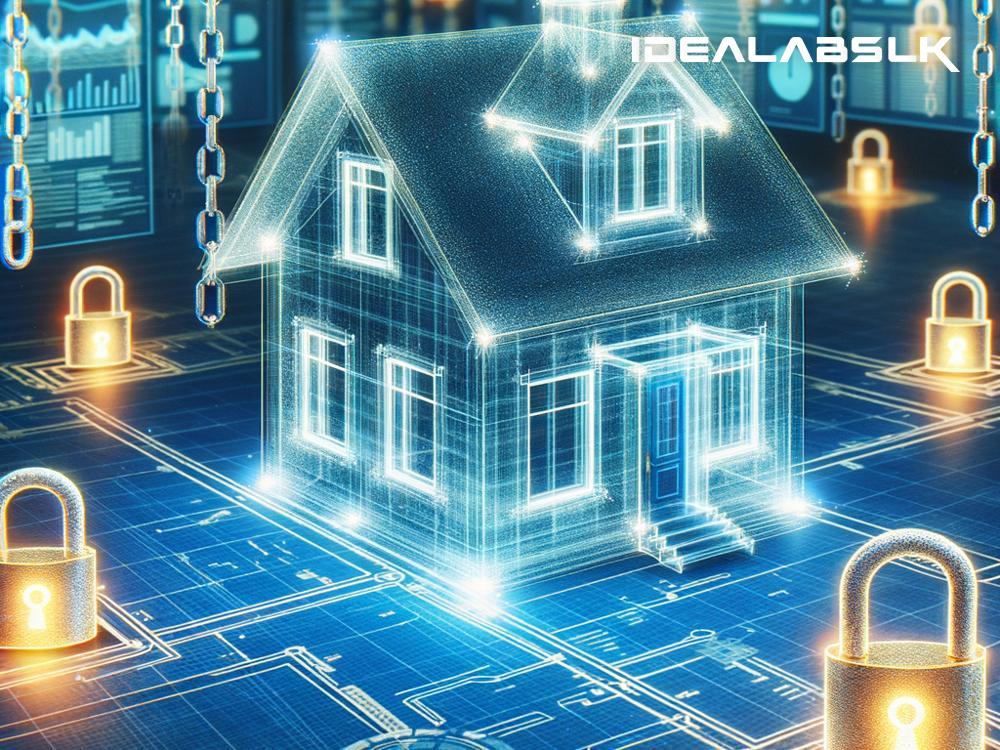Blockchain for Real Estate: Making Property Deals Safe and Clear
When it comes to buying or selling a house or any property, it can feel like you're walking through a thick fog. There’s so much paperwork, so many people to talk to, and so much waiting! But what if there was a simpler way? This is where blockchain technology steps in, offering a clearer, safer path for real estate transactions.
What is Blockchain?
Imagine a digital ledger, similar to a notebook, that securely records transactions. Each page in this notebook is a "block," and they are all linked together in a "chain." Unlike a regular notebook, this one is incredibly secure, transparent, and can't be tampered with. That's blockchain for you!
How Blockchain Transforms Real Estate
1. Crystal Clear Transactions
Blockchain eliminates the fog in real estate transactions by providing a clear, accurate history of a property. From the moment a property is built to each time it changes hands, every detail is recorded. This transparency means buyers and sellers can trust the process much more.
2. Airtight Security
Because of its complex, encrypted nature, blockchain is nearly impossible for hackers to break into. This means your property records are safe. So, when you buy a house, you won't have to lose sleep worrying about the security of your documents.
3. Speeding Up the Process
If you've ever bought or sold a house, you know it can take forever. Part of the reason is the mountain of paperwork and the back-and-forth between lawyers, banks, and government agencies. Blockchain can simplify this process by storing all necessary documents securely online, making them accessible to everyone involved in the transaction. This can significantly speed things up.
4. Reducing Costs
All that paperwork, along with the various fees paid to lawyers and real estate agents, can add up. By using blockchain to streamline transactions, many of these costs can be reduced or even eliminated. This makes buying or selling a property more affordable.
Real-World Examples
Several countries and companies are already experimenting with blockchain in real estate. For example, Sweden's land registry authority has tested a way to record property transactions on a blockchain, potentially replacing their old system. Meanwhile, various startups are creating blockchain platforms to handle everything from property listings to managing rental agreements.
Overcoming Challenges
Despite its potential, blockchain in real estate is not without its hurdles. One of the biggest challenges is getting everyone on board: governments, banks, real estate companies, and buyers and sellers. There’s also the need for a regulatory framework that accommodates this new technology while protecting everyone's rights.
Furthermore, the technology itself must become more user-friendly. Blockchain can seem complex and intimidating to those not familiar with it. Simplifying it for everyday use will be crucial in making blockchain-based real estate transactions the norm.
Looking Forward
Imagine a world where you could see the entire history of a house at the click of a button: when it was built, who has owned it, and all the work that’s been done on it. Imagine being able to securely buy or sell a property over the weekend without running around signing papers. That’s the potential future blockchain offers to the real estate world.
In conclusion, blockchain technology holds the promise of making real estate transactions more transparent, secure, and efficient. While challenges remain, the potential benefits are significant, both in terms of cost and time savings. As the technology continues to evolve and more people embrace it, we could see a revolution in how we buy and sell property, making it easier for everyone involved.
By stepping into the world of blockchain, the foggy process of dealing in real estate is poised to become as clear and simple as a sunny day. It's an exciting time for technology and property, and the journey has just begun.

